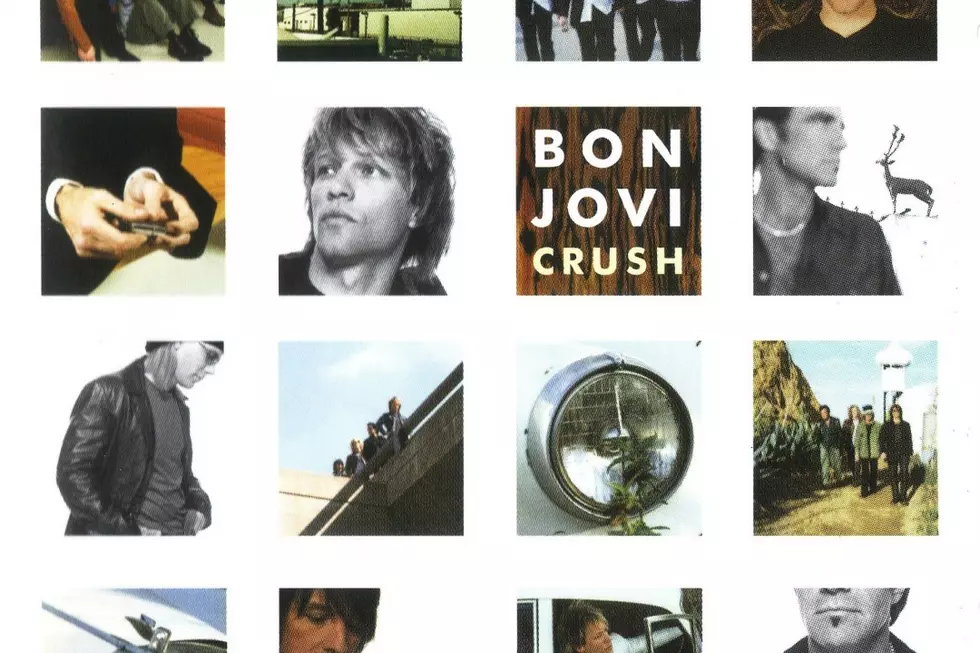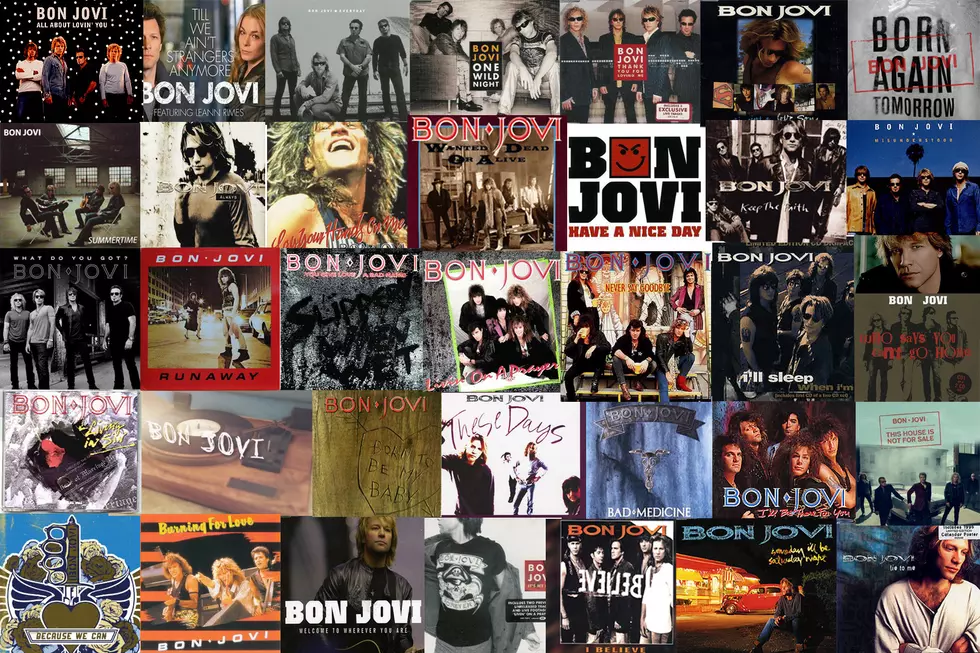
How Bon Jovi Fashioned an Unlikely Comeback With ‘Crush’
Bon Jovi made it through the grungy '90s unscathed, but as the 21st century dawned, they'd been out of commission for years — on hiatus while the group's members (including singer Jon Bon Jovi and guitarist Richie Sambora) pursued various solo projects.
Even after all the hit singles and albums they'd amassed over the years, it seemed reasonable to wonder whether the band might have started losing steam. Those worries were resoundingly put to rest by Bon Jovi's seventh studio effort, Crush.
Released June 13, 2000, the new LP offered another example of how they'd gotten on top and stayed there for so long. The songs were identifiably Bon Jovi, right down to the talkbox Sambora used on the leadoff cut and opening single "It's My Life," but they also made just enough concessions to current sounds to ensure that Top 40 radio programmers wouldn't have any reason not to keep making room for them.
More than most rock bands of their generation, Bon Jovi had always been overtly commercial without coming off as desperate, and that continued with Crush.
Aiding the band in its quest for continued chart domination was new co-producer Luke Ebbin, who joined Bon Jovi and Sambora at the console after an earlier plan to hire Bob Rock (who'd helmed 1992's Keep the Faith) and Bruce Fairbairn (producer for 1986's Slippery When Wet and 1988's New Jersey) was foiled when Fairbairn suddenly died in 1999. Recommended by A&R legend John Kalodner, Ebbin quickly proved his value by building upon a demo at his home studio.
Watch Bon Jovi's 'It's My Life' Video
"I purposely chose a song that they had only demoed with an acoustic guitar and vocal that I knew was ripe for programming, string arrangements and background vocal arrangements, so I could show him some of my abilities," Ebbin later later recalled. "I locked myself in my studio and produced a fully arranged version of the song and returned to Bon Jovi’s the following week. We spent a couple of days re-recording my version with the full band and at the end of the second day, Jon told me I was hired."
Bon Jovi and Sambora also knew where to look for a hit, hooking up with pop hitmaker du jour Max Martin to co-write "It's My Life," which helped bring the band the radio-ready anthem it was looking for. The single peaked at a relatively middling No. 33 on the U.S. Top 40, but had a far greater impact on other charts (such as the so-called "Adult" Top 40) and in other territories, where it helped establish a beachhead for the group's growing international audience.
"It's My Life" also served as a suitable opening salvo for Crush, which went double platinum in the States while peaking inside the Top 10 and garnering a Grammy nomination for Best Rock Album. It all added up to a renewed lease on life for Bon Jovi, who went on to release a slew of records throughout the rest of the decade.
Bounce arrived in 2002, followed by This Left Feels Right in 2003, Have a Nice Day in 2005, Lost Highway in 2007, and The Circle in 2009 — and that's not counting the live album (One Wild Night) and four-CD box (100,000,000 Bon Jovi Fans Can't Be Wrong) they put out in between.
The moral of the story, in the end, is that it's never wise to bet against Bon Jovi — even when the band loses a key member, as they did when Sambora subsequently departed. One way or another, these guys always seem to find their way back near the top of the charts.
See Bon Jovi Among the Top 100 Albums of the '80s
More From Ultimate Classic Rock









